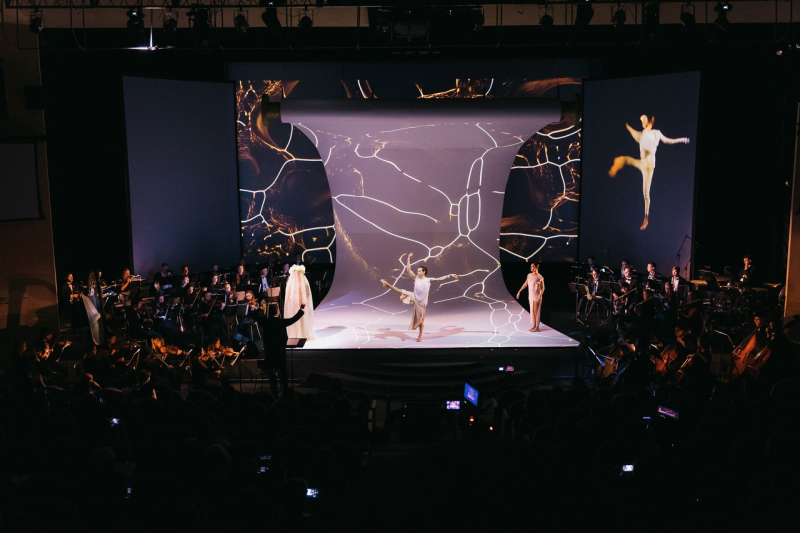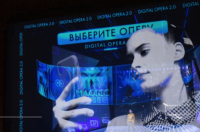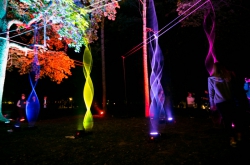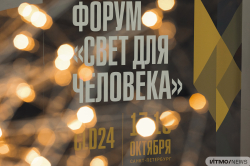About the contest
Digital Opera is a festival combining opera and contemporary digital art. It is held annually by the St.Petersburg Seasons organization with the support of the Government of St. Petersburg. The mission of Digital Opera is not only to promote opera but also redefine and modernize this classical genre, as well as find its place in the context of advanced digital technologies.
The festival brings together world-famous opera stars, renowned theater and opera directors, as well as multimedia artists, media designers, and students of the associated fields. Its participants have an opportunity to showcase their talents by creating a stage visual design and video sequence for an opera aria that is both aesthetically and logically connected with the musical accompaniment.
This year, the final round took place at the movie and concert hall of St. Petersburg State University of Film and Television. Fourteen teams, including four teams from ITMO University, participated in the contest.
Team To Be, which consists of students from ITMO’s Creative Lighting Department (СLD ITMO University), as well as the university's Lighting Design and Robotics Master’s programs, received the award for the best multimedia performance director.
According to Aleksandra Irisova, a curator of СLD ITMO University cultural projects, it is extremely important for Interactive Media Design students to participate in such competitions.
“It’s great that students are eager to participate and improve their skills. Even though we closely work with various museums and regularly take part in the Night of Light festival in Gatchina, it can be challenging to give our students an opportunity to take part in stage performances. But this is a real chance for them to try their hand at something completely new yet relevant and popular. That’s why we want to keep on working with the organizers of Digital Opera,” says Aleksandra Irisova.
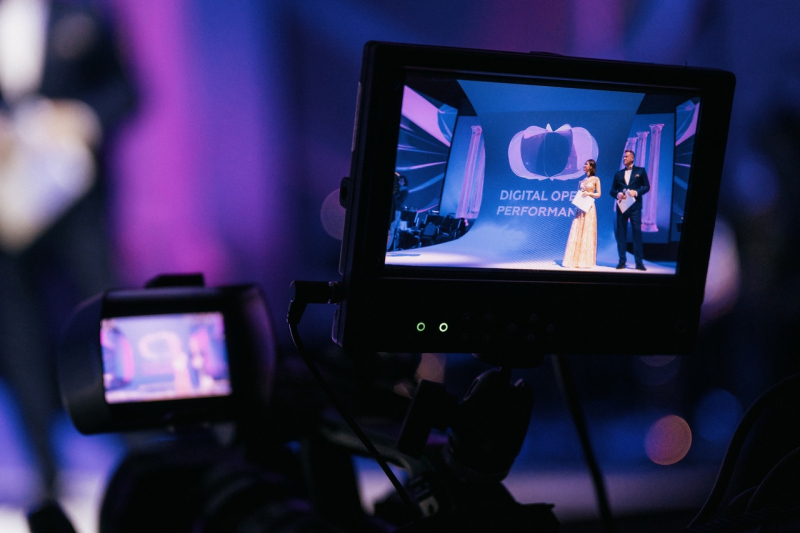
Three architects and one roboticist
The three students of the Lighting Design program, Elena Cheremisova, Anastasia Laushkina, and Nadezhda Kumakova, and the student of the Robotics program, Daniel Abuev, teamed up in 2019 during the International Conference on Lighting Design, organized by CLD ITMO University with the participation of the State Hermitage Museum and the support of the city administration.
The second day of the event was held at Sevkabel Port, and all participants were to create video content for the conference’s art exhibition. For the students, it was a chance to try themselves in media design.
“The professors named the topic – chimera – and we had to define its concept on our own,” shares Nadezhda Kumakova. “There were no limits, we came up with our own vision and visual sequence. We had little to no experience in working in such programs and creating 3D-mappings, so we were challenged to figure it out very quickly. Plus, we needed an animator, and that’s how we found Daniel, who had long been into editing and animating in Adobe After Effects. He really enjoyed the contest and now he is part of our team.”
Nadezhda, Anastasia, and Elena have known each other since 2014 because they all graduated from the Institute of Urban Planning, Architecture & Civil Engineering at Yury Gagarin State Technical University of Saratov and decided to pursue their Master’s degrees at ITMO University. Each team member has their own role: Nadezhda Kumakova and Anastasia Laushkina act as designers and directors, Elena Cheremisova is a screenwriter and Daniel Abuev is in charge of editing and animation.
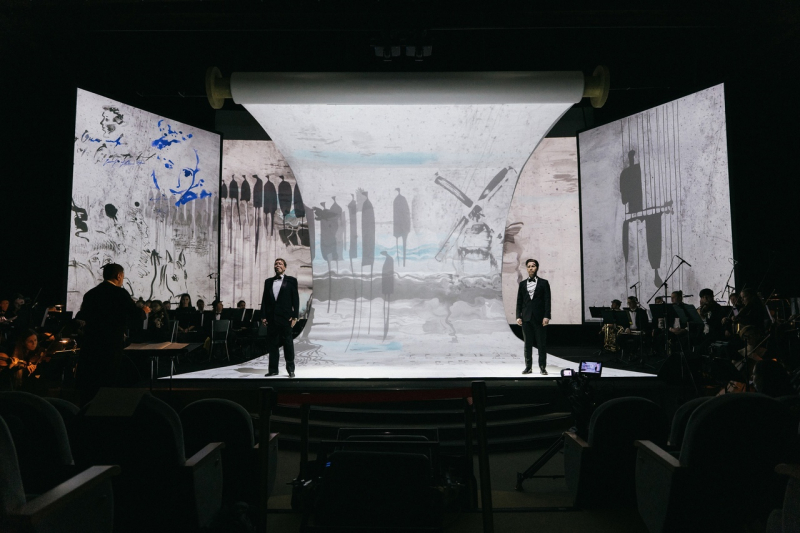
Enthusiasts vs. professional artists
The team participated in the competition for the first time, and, in fact, it was only their second time working on such a sophisticated multimedia project. That’s why the victory came as a surprise for them.
“As we used to be design and architecture students, such projects are a wholly new experience for us,” continues Nadezhda Kumakova. “Only Daniel has a tech background and we are more about art. Other teams had real media artists so we didn’t expect much and would’ve been just as happy to be guests at the final gala concert. But, amazingly, the jury appreciated our directing the most.”
For their project, the team chose an excerpt from Lensky and Onegin duet "Enemies..." – Pyotr Tchaikovsky’s Eugene Onegin opera performed by opera singers Anton Andreev and Daniil Sokolov. They came up with the idea and aesthetics of the visual accompaniment straight away and used watercolors and graphics by Elena Cheremisova, inspired by the drawings of Victor Borisov-Musatov and Alexander Pushkin, as well as natural settings that embody the course of life.
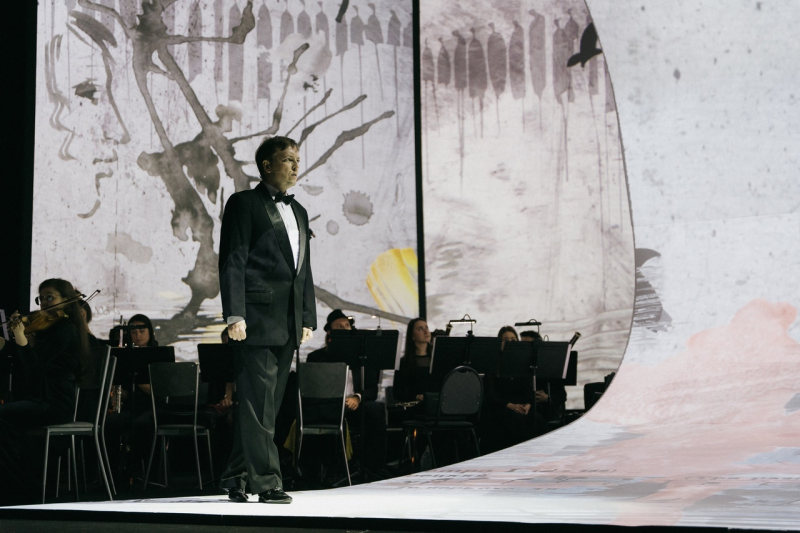
“We took the time to tune in, listen to this passage and the entire opera, and tried to relive this piece. It’s a unique synthesis of the longing of loneliness, melancholy, the brilliance and pleasures of high life, as well as the inevitability of fate. We wanted our project to be as sincere and emotional as possible. It was obvious that we should use flowing materials and drawing by hand, but for a long time, we could not figure out how to present it, how to preserve the effect of drawing by hand and the fluidity of watercolor,” explains Anastasia Laushkina.
Implementing the ideas turned out to be much harder than it seemed at first glance as the team had to animate the static drawings and figure out how to use pictures in the mapping format.
The professors of the Lighting Design program supervised the team throughout the project and helped them find a solution. The contest also hosted a series of workshops by accomplished specialists on directing, working with special programs, projectors, and other equipment, as well as the general principles of creating scenery for theatrical performances.
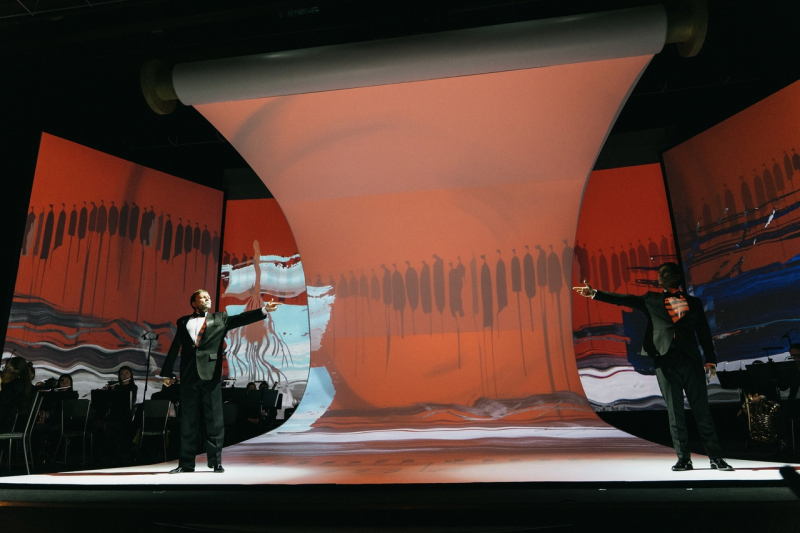
Prospects and new ideas
The victory in the Digital Opera contest inspired the team to further develop in this field, participate in other competitions, and try themselves in media design. They aim to develop an interactive and immersive project that would let the audience create content themselves.
“We understood that technologies offer new opportunities, so there's no limit to the resources they offer. Any idea can be brought to life. But it’s crucial to define it first and find ways to make it real. So, we need to keep on developing, learning new things, participating in numerous competitions, and setting new goals,” concludes Nadezhda Kumakova.
